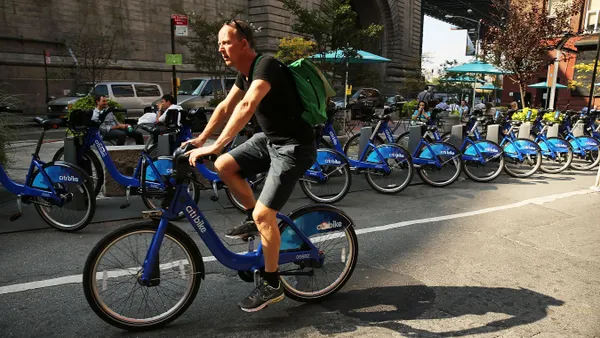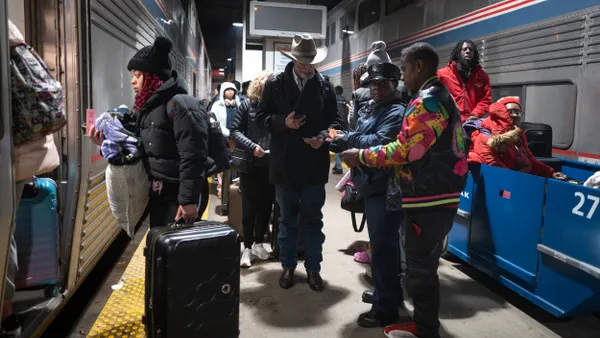Dive Brief:
- A U.S. House of Representatives subcommittee approved a $137.1 billion fiscal year 2020 transportation appropriations bill last week, setting it up for a vote soon before the full House Appropriations Committee. The bill represents a $6 billion increase over fiscal year 2019 spending levels.
- No amendments were considered during the subcommittee vote, although Republicans are likely to object to several policy riders inserted by Democrats. For example, the bill would block the U.S. Department of Transportation (USDOT) from finalizing its rollback of Obama-era fuel-economy standards, and would block the administration from rescinding funding for California’s scaled-back high-speed rail project.
- The bill would spend $13.5 billion on public transportation and $2.7 billion on passenger rail, $1 billion more than was instructed under the last transportation authorization bill.
Dive Insight:
This marks the first transportation spending bill written by Democrats in nearly a decade, and the spending levels and policy provisions reflect their priorities. Especially notable are the increases to public transit and rail, which come despite the Trump administration’s efforts to cut back on rail projects. President Trump’s proposed budget would have slashed federal grants for transportation projects, and would have reduced funding for Amtrak and Washington, DC’s Metro system.
The House legislation includes $1 billion for the National Infrastructure Investments grants through the Better Utilizing Investments to Leverage Development (BUILD) program, $100 million more than was enacted in fiscal year 2019. The popular grant program has been used to fund alternative transportation projects, including public transit, and urban redevelopment.
In a statement, Paul Skoutelas, president and CEO of the American Public Transportation Association (APTA), praised committee Democrats for their "work to provide essential funding to bring the nation’s bus and rail systems up to a state of good repair," and for reaffirming "the importance of moving forward with critical public transportation and intercity rail projects."
Politico reports that Republicans, led by ranking member Rep. Kay Granger of Texas, have objected to some of the policy riders in the bill and are likely to raise more debate when the bill reaches a full committee vote. The fuel economy language, a direct rebuttal to the Trump administration’s policy, is likely to be controversial. Republicans have also objected to the bill’s maintained funding for California’s high-speed rail project, which comes after the Federal Railroad Administration (FRA) told the state it would cancel a $929 million grant agreement for bullet train construction. Although Democrats can keep the provisions in the House, it is unlikely they would clear the Republican-controlled U.S. Senate.









